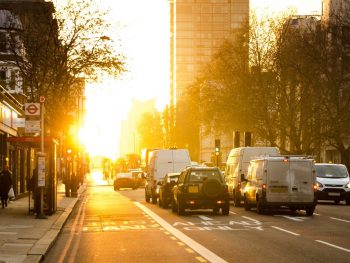Car dependency rises due to lack of viable alternatives
More than a third (35%) of UK drivers are more dependent on using their car than a year ago; with public transport increasingly seen as too expensive and unreliable to be a viable alternative.

The proportion of drivers who say they are more dependent on cars is at its highest level in seven years
The figures, part of the latest RAC Report on Motoring, show that the proportion of drivers who say they are more reliant on their cars than they were 12 months ago is up to 35% from 33% in 2018, and from 27% a year earlier; it’s now at its highest proportion in the past seven years.
Just 14% of drivers say they have become less dependent than a year ago, though this has also increased from 12% in 2018, indicating a small rise in those saying they are less dependent on their vehicles.
When asked why drivers are using their cars more, the top reasons given included a greater need to transport family members (28%), family and friends moving further away (24%) and a reduction in the provision or quality of public transport (25%) – with drivers in the North East (42%) significantly more likely to call this out as a reason for them increasingly turning to the car.
Around half of drivers (53%) say they are frustrated by the lack of feasible alternative modes of transport for long journeys, with a similar proportion (52%) saying the same about short journeys. These figures both rise to 55% for drivers aged between 25 and 44.
More than half (57%) say they would be willing to use their cars less if the quality of public transport was better. Of these drivers, half (50%) say the reason they don’t use public transport more is that fares are too high – up by five percentage points on last year – while 41% say services are not frequent enough. Meanwhile, a growing number of people (36% – up from 31% in 2018) say that a lack of punctuality is a significant barrier to them using public transport as an alternative to driving, and 38% say services don’t run where they need them to.
And while the Government and local authorities are increasingly trying to encourage drivers out of their cars, an overwhelming majority of motorists (73%) say they would find it very difficult to adjust to life without a car – with more than half (54%) of this group stating this is because their vehicle is essential for carrying heavy items.
RAC data insight spokesman Rod Dennis said the research makes it clear just how frustrated many drivers are with the lack of decent alternatives for some of their trips.
He added: “For more than a decade now, drivers have been saying that they are willing to use their cars less if public transport was better – and this year’s figures indicate it’s the high cost and low frequency of services that are the biggest problems cited by drivers. At the same time, many drivers continue to believe that public transport does not suit their needs for the sorts of journeys they have to make.
“The ongoing challenge for national and local government, and combined authorities, is therefore to deliver credible alternatives to the car for specific journeys that are regularly completed by a lot of people. Connecting large residential areas with popular locations for work would surely be a good starting point – giving drivers the opportunity to swap sitting in daily traffic jams for a fast, frequent alternative. Greater investment in walking and cycling infrastructure could also go a long way to encouraging drivers to use of their cars less, especially for short journeys that make up around a quarter of all drivers’ trips.”
Responding to the research, Darren Shirley, chief executive of campaign for Better Transport, said: “The good news is that the Government has a golden opportunity to banish these bugbears, with a Rail White Paper and National Bus Strategy due in the coming months. It must take action to make public transport a more affordable, convenient choice and reduce car-dependency.”
To access the report on Motoring, click here.


















Dave Robbins25. Feb, 2020
Whilst I am a car owner, I haven’t used my car to commute to work since 1975. I usually cycle, but if the weather makes it
dangerous or I’m not 100% fit there’s a good bus service 5 minutes walk from my house. It’s every half hour and is reliable whenever I use it. Ok,
it does involve a ten minute walk at the other end of the journey to get to my office. But I enjoy the exercise. It isn’t cheap — £4.60 for a return
ticket. But the truth is, that if we’re going to do something about air quality, emissions and global warming, there will be a price to pay. Whilst I
absolutely understand that for some, using public transport or cycling to work isn’t viable.
But for plenty of commuters, they need to try the alternatives. They might be surprised that it’s not as awful as they think.